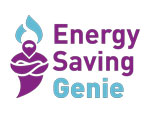Landlords! Now is the time to see if your rental properties qualify for the Government’s Energy Company Obligation grant scheme. The funding pot has £4 billion funding allocated to upgrade the least efficient homes in the UK.
This generous grant scheme is available for rental properties providing tenants meet the household eligibility rules. Landlords could get thousands of pounds worth of improvements to their investments.
The grants are available now and landlords and tenants can use our free grant checker to see if they are eligible and if so, be connected with one of our 30+ Trusted Registered Installers with direct access to funding.
ECO grants and energy-efficiency incentives have been around for a while BUT lots of landlords don’t know that their tenants and properties could be eligible for grants.
In 2021 there are funded grants for heating upgrades, smart thermostats, insulation and there are incentives to switch to renewable technology such as Air Source Heat Pumps (ASHPs).
These schemes can will help landlords ensure their rental properties meet the new MEES energy-efficiency standards without the high price tag associated with normal property upgrades.

1. What are ECO grants?
ECO stands for Energy Company Obligation, a Government scheme that obligates energy companies to reduce carbon emissions and tackle fuel poverty,
ECO launched in 2013 and it will run until 2026. The current phase is called ECO3 which runs until March 2022 when ECO4 will take over.
A whopping 3.1 million measures such as insulation or heating upgrades have been installed in over 2.3 million homes wince the start of the scheme.

2. Examples of grants available to landlords in the UK
The biggest and most lucrative grant scheme available to landlords in 2021 is the Energy Company Obligation which provides funding for the installation of energy efficiency measures in ‘certain’ rental properties where tenants meet the eligibility criteria or where the property is in an area with high levels of fuel poverty. ECO is isn’t to be confused with the Green Homes Grant that also provided funding for energy-efficiency home improvements. The Green Homes Grant finished in March 2021 for new applications, whereas the Energy Company Obligation runs until 2026, (although the rules are set to change in April 2022).
The ECO grant scheme places an emphasis on existing heating, and the following grants could be available to UK landlords:
Wall insulation grants
Cavity wall insulation grants are available for properties with cavity walls where the main heating source is electric. In some cases properties that are heated by gas boilers can be eligible. If your rental was built after the 1920s, it is likely to have cavity walls.
Internal wall insulation grants are available for properties with solid walls – if your property was built before 1920 it is likely to have solid walls. The existing heating needs to be electric in order to be eligible for this grant.
Loft or roof insulation grants
Loft insulation grants are available in rental properties where the existing main heating source is electric and where there is 100mm or less of existing loft insulation.
Room in roof insulation grants are available in rental properties where the existing main heating source is electric and where there is 100mm or less of existing loft insulation.
Heating grants
Boiler grants unfortunately aren’t available to tenants or landlords.
Electric storage heater grants are available for rental properties where the existing heating is electric room heaters or where there is no heating at the property
First time central heating grants are available for rental properties. The property must not have had central heating previously and must not have had radiators previously. If your rental property is eligible for a central heating grant if insulation is possible and funded it must be installed at the same time as part of the funding rules. Sometimes smart thermostats are also included in the grant package.

3. Who can apply for a grant?
Grants can be applied for by landlords, homeowners and tenants. Where the property is privately rented the application has to be submitted in the tenants name and both the tenant and landlord will need to consent to work being undertaken.
There are four main routes to eligibility:
Eligibility criteria 1: Tenant is claiming or has claimed benefits
The property is rented to tenants that have claimed benefits within the last 18 months. There are no income-rules if the following benefits have been claimed and the tenant doesn’t need to be currently claiming. Benefits include:
- Armed Forces Independence Payment
- Attendance Allowance
- Carer’s Allowance
- Child Tax Credit
- Constant Attendance Allowance
- Disability Living Allowance
- Income Support
- Industrial Injuries Disablement Benefits
- Pension Guarantee Credit
- Personal Independence Payments
- Severe Disablement Allowance
- Universal Credit
- War Pensions Mobility Supplements
- Working Tax Credit
Eligibility criteria 2: Tenant is claiming Child Benefit
If your property is rented to tenants that claim Child Benefit, they could be eligible. Where Child Benefit is the only benefit received the tenant will need to meet additional income rules.
Eligibility criteria 3: Area-based eligibility
Many local authorities have an area-based eligibility criteria as part of their Flexible Energy rules (these have to published in a Statement of Intent). If your rental property is in one of these areas the tenants might not need to claim benefits or meet income rules but each council area has their own rules.
Eligibility criteria 4: Local Authority Flexible Energy
If your tenant meets local authority flexible energy rules then your property could be eligible for grants.
Each local authority sets their own eligibility rules for funding so that people that don’t claim benefits can access the grants. These rules are published by the Local Authority in a Flexible Energy Statement of Intent.

4. How to apply for a grant?
Use our simple eligibility checker to see what grants are available for your rental property.
You’ll need to answer a few questions about the property and tenants and you’ll get an immediate assessment of eligibility. Once you have submitted an application we’ll liaise with the tenants and/or property arrangements.
Check your eligibility at https://energysavinggenie.co.uk/energy-company-obligation/

5. The benefits of applying for grants as a landlord in the UK
ECO grants are a perfect opportunity to upgrade your rental property and help your tenants to save money on their utility bills.
The grants are a lifeline for landlords and in turn give tenants affordable, warm homes. The grants could be a cheap way to ensure your property is ready for the Minimum Energy Efficiency Standard (MEES).
As a landlord, you can find out if you’re eligible at https://energysavinggenie.co.uk/energy-company-obligation/



